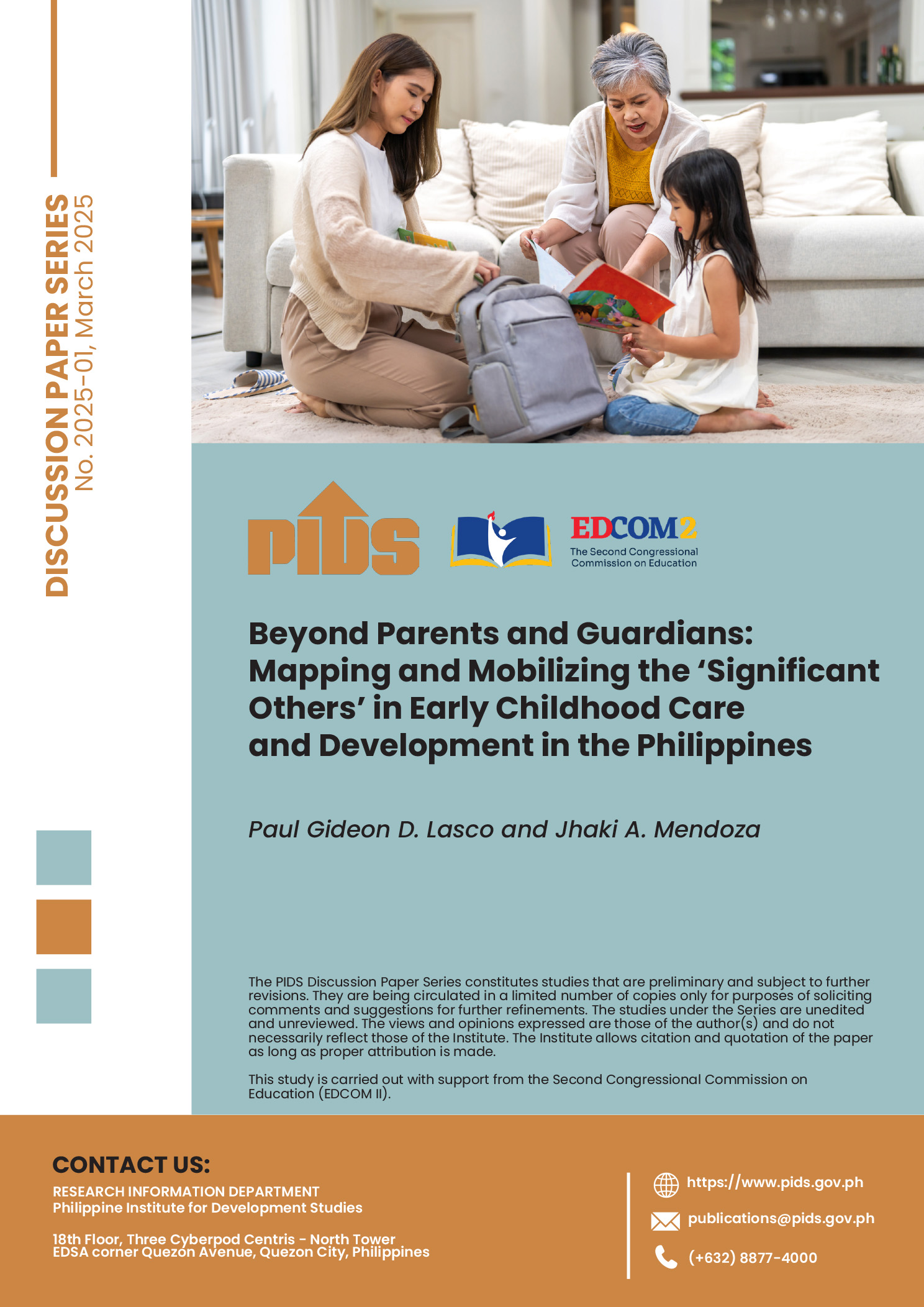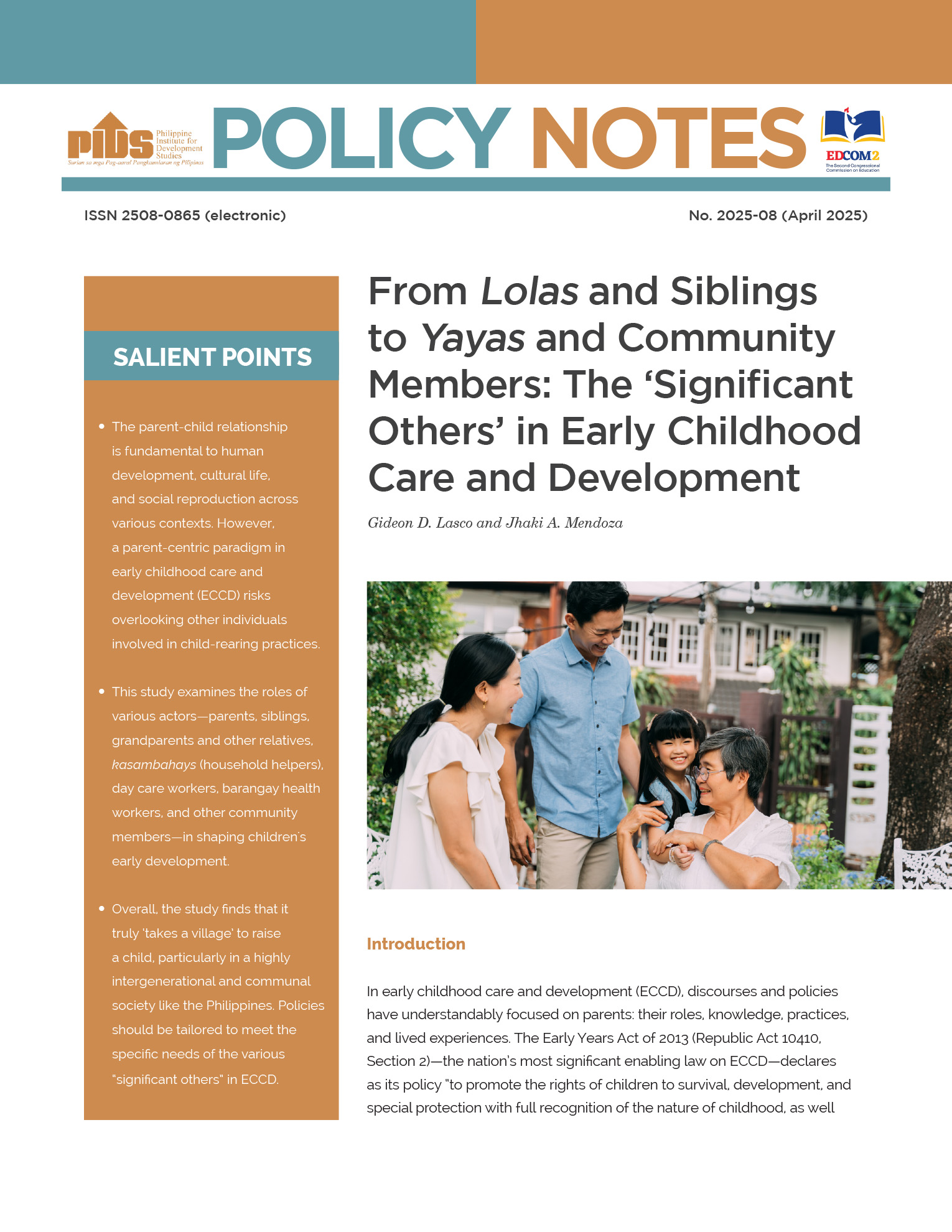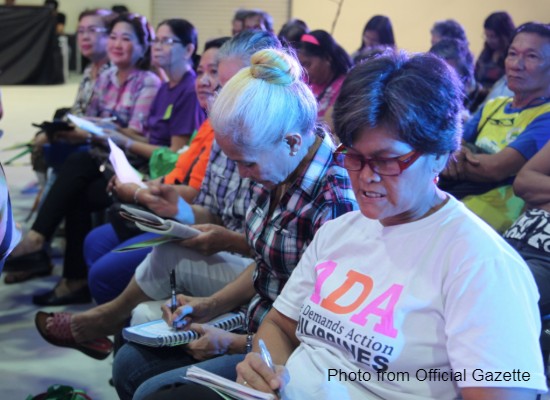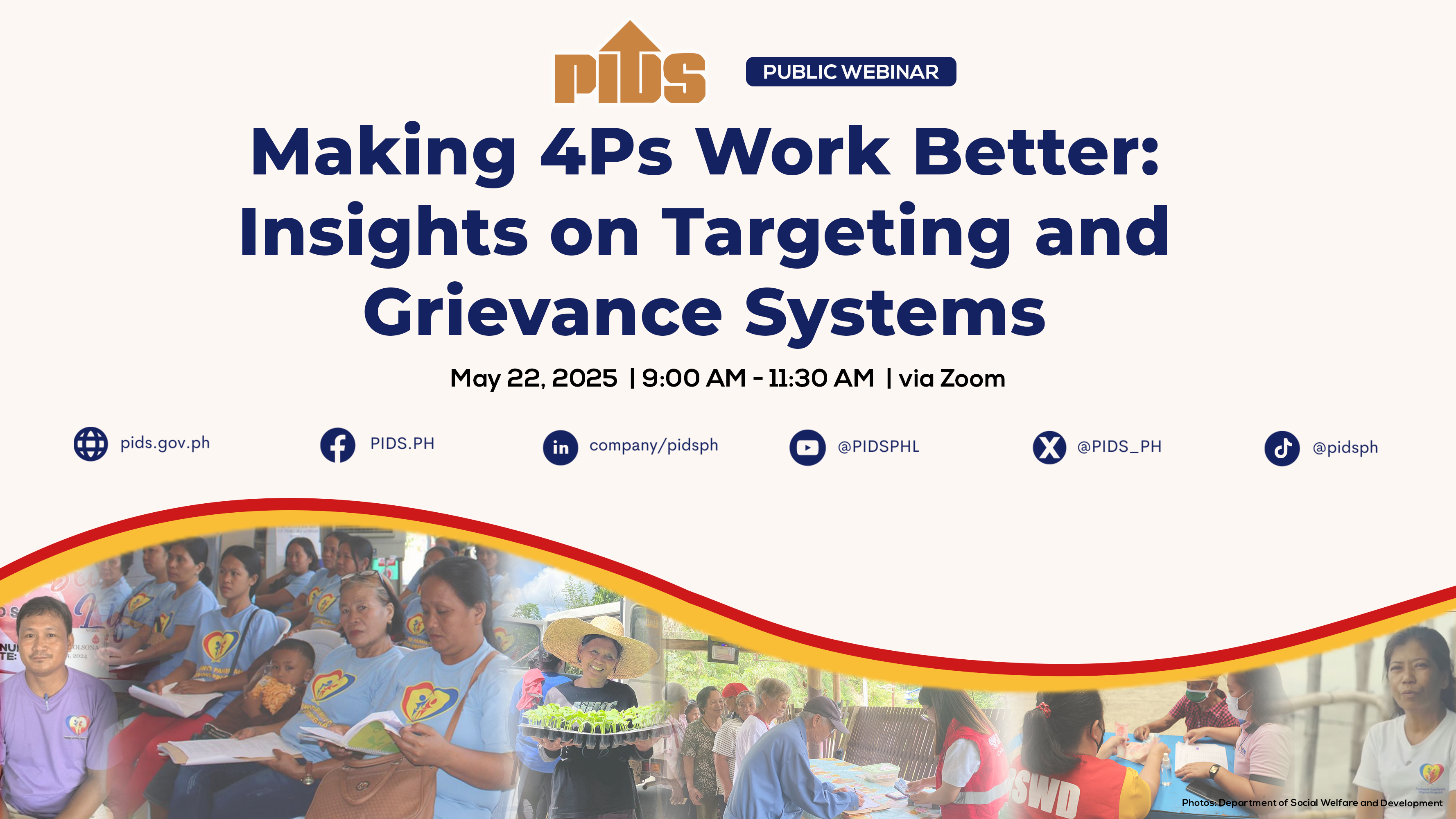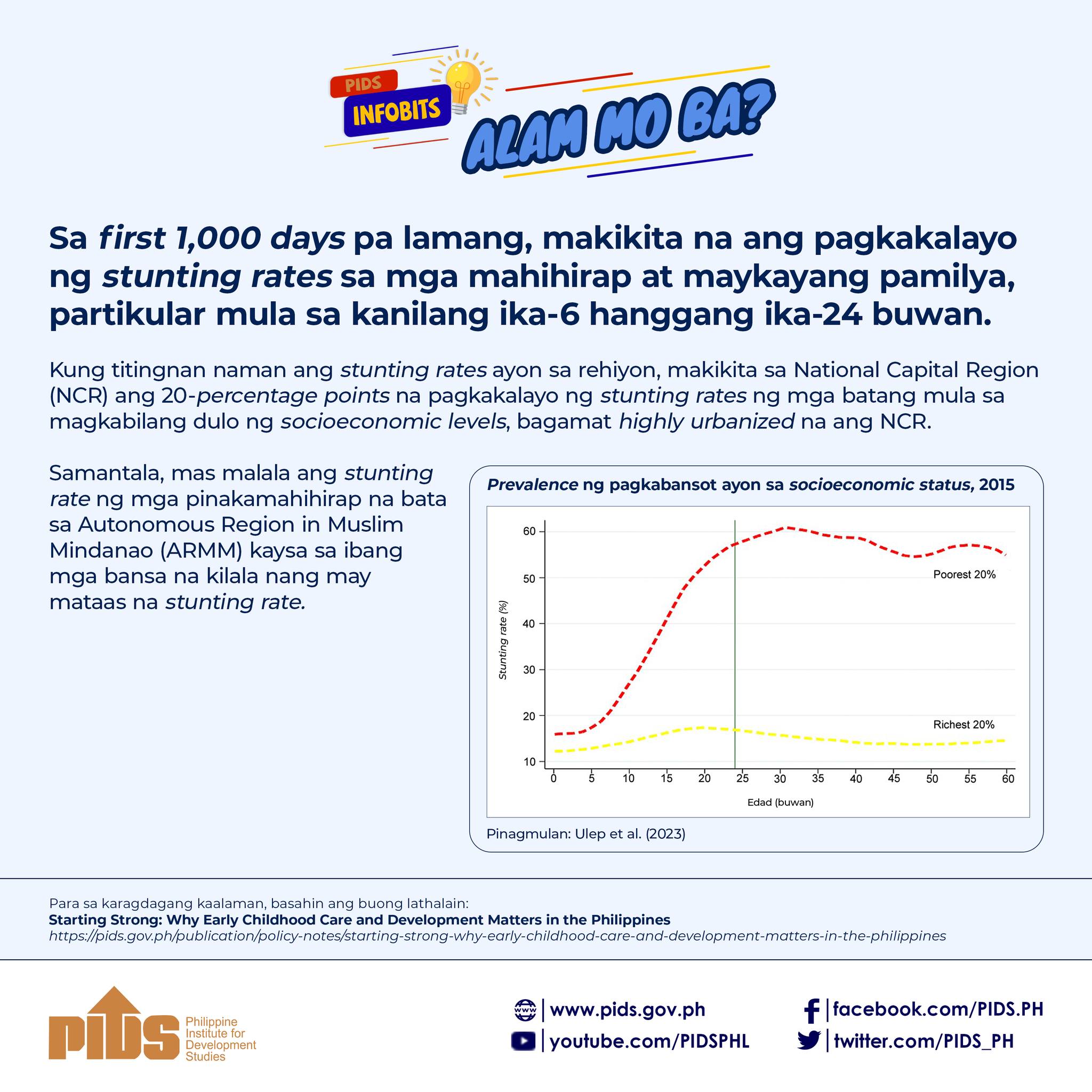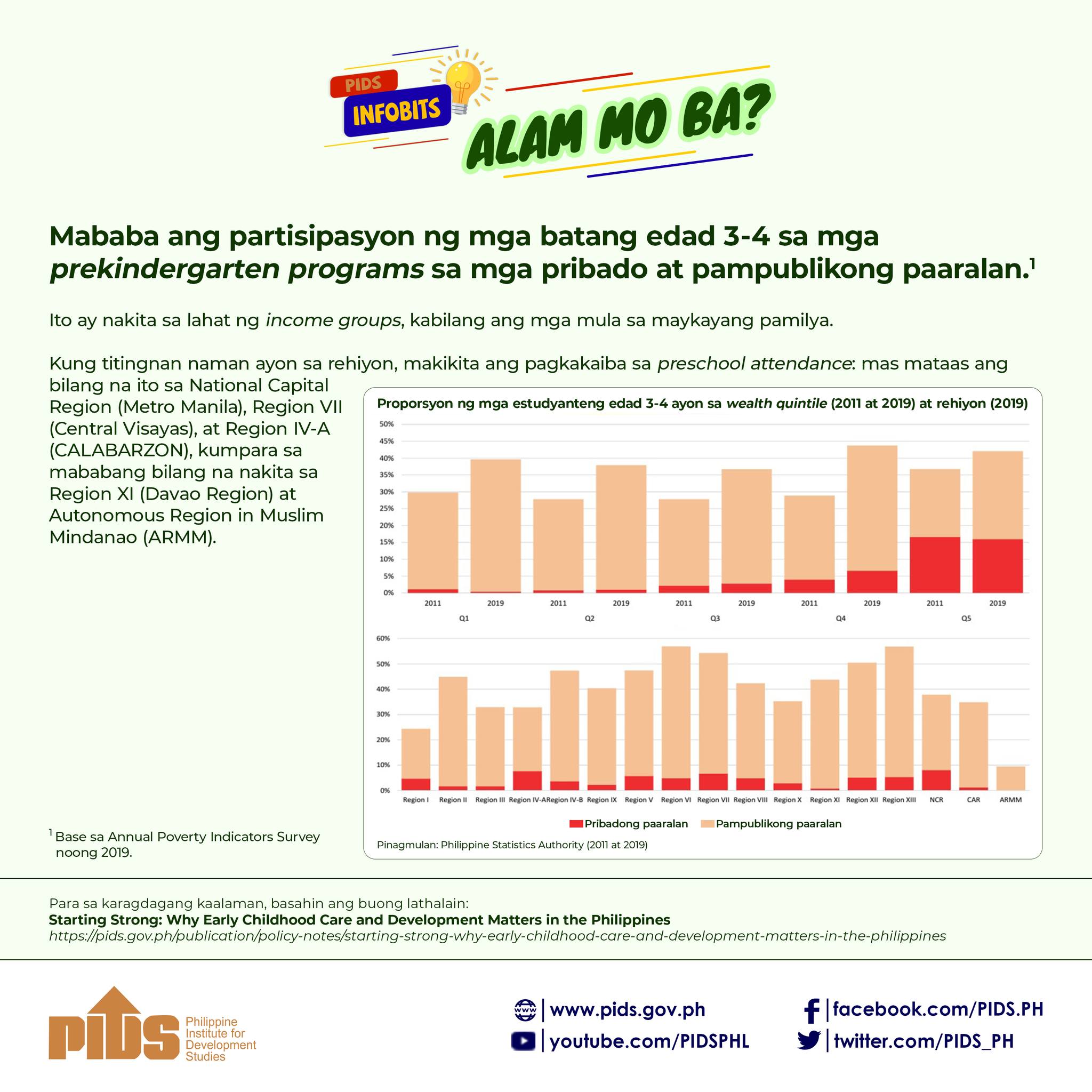
Many Filipino children fail to achieve their potential due to inadequate early childhood care and development services, falling short of the goal of universal access for children. Only 20% of children aged 3 to 4 were enrolled in pre-kindergarten in 2022, and merely 23% are benefitting from feeding programs. The country also faces a supply side shortfall of around 33,000 daycare centers, far below the estimated 96,000 needed, and three times lacking of the current stock of child development workers.
These alarming gaps sparked a landmark law revamping early childhood care and education, driven by research from the Philippine Institute for Development Studies (188体育).
Signed into law on May 8, 2025, the Early Childhood Care and Development (ECCD) System Act, or Republic Act No. 12199, aims to close long-standing gaps in care, nutrition, and education for children from birth to age five.
“This legislation marks a crucial step in ensuring that every Filipino child has the support and opportunities they need to thrive,” said Dr. Valerie Gilbert Ulep, 188体育 Senior Research Fellow and co-author of the study “Behind the Slow Start: An Assessment of Early Childhood Care and Development in the Philippines.”
The study — produced in partnership with the Second Congressional Commission on Education (EDCOM 2) — highlighted how governance, funding, and other supply-side challenges have long stalled progress. National support for early childhood services has been largely reactive and often lacks incentives for local government units (LGUs) to invest in long-term solutions.
To address these issues, the ECCD System Act mandates the creation of dedicated ECCD offices in every province, city, and municipality — empowering LGUs as frontline implementers. The law aims to strengthen governance, improve resource allocation, and ensure the delivery of comprehensive, quality services at the local level with a strengthened monitoring and evaluation system, through the inclusion of related indicators in the Seal of Good Local Governance to recognize LGUs championing ECCD services.
The law also highlights the need for professionalizing and standardizing salaries for child development workers. Ulep et al. emphasized the insufficient stock and varying compensation schemes and hiring arrangements of CDWs across LGUs.
It also enhances inter-agency coordination through the revitalized ECCD Council, promoting a holistic, multi-sectoral approach across health, nutrition, education, and social welfare sectors— an approach strongly advocated in the 188体育 study.
The Department of the Interior and Local Government (DILG) is tasked with building LGU capacity, monitoring their compliance with the ECCD system, and facilitating coordination among local bodies.
The Department of Education (DepEd) is tasked with promoting ECCD careers, supporting curriculum development, and facilitating the assessment and certification of service providers.
Meanwhile, the Department of Health (DOH), Department of Social Welfare and Development (DSWD), Commission on Higher Education (CHED), Technical Education and Skills Development Authority (TESDA), Department of Agriculture (DA), and the National Nutrition Council (NNC) are tasked with supporting programs related to health, nutrition, social welfare, and skills development, including supplementary services such as feeding and emergency programs.
The law further prioritizes inclusive access for children with disabilities and aligns with the Universal Health Care Act to foster holistic child development.
“This new law highlights how research can directly inform policies that impact lives,” Ulep said. He also credited the 188体育 and EDCOM 2 partnership for translating research into meaningful policy reforms for the benefit of Filipino children nationwide.
“It is a powerful reminder of what we can achieve when evidence guides our decisions,” he added.
For more information on 188体育’ ongoing research initiatives, visit /publications. – MAEC


